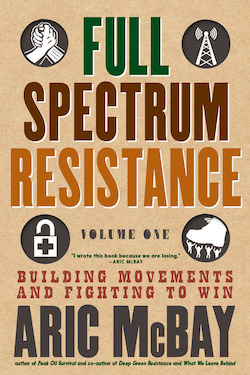Aric McBay has written a massive two-volume handbook for radical political action, titled Full-Spectrum Resistance. It offers a theory of social change and practical advice on strategy, organizing, communication, and the like, all illustrated with historical case studies.
I wrote a review for Roar, highlighting the the many virtues and (fewer) shortcomings of the book, along with some ideas of how organizations might use it.



